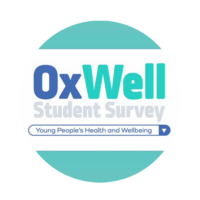Students
-

Social Emotional Mental Health (SEMH) and Alternative Provision in Education
In this In Conversation podcast, we are joined by the President of PRUsAP, Sarah Johnson. Sarah also advises the Department for Education for Alternative Provision and is the Director of Pheonix Education Consultancy. This episode will explore Social Emotional Mental Health (SEMH) and Alternative Provision in education.
Read more -

RESEED – the perceived impact of an enhanced usual care model of a novel, teacher-led, task-shifting initiative for child mental health
Video abstract from Setareh Ekhteraei and Choden Dukpa on their co-authored CAMH journal Short Research Article ‘RESEED – the perceived impact of an enhanced usual care model of a novel, teacher-led, task-shifting initiative for child mental health’.
Read more -

Stress and mental health presentations in secondary school-aged young people – recording
This was organised by ACAMH’s Adverse Childhood Experiences (ACEs) Special Interest Group, and was led by Dr. Ruth Blackburn and Sorcha Ní Chobhthaigh from UCL Great Ormond Street Institute of Child Health present research on mental health in secondary school-aged young people.
Read more -

“I’m not going and you can’t make me!” – how to support children and young people with emotionally based school avoidance (recording)
Delegates only. Over the last few years, there has been an increase in referrals to CAMHS for young people struggling to attend school. Young people can present with significant distress and family relationships may become strained. It can be challenging for CAMHS professionals to know how to support young people and their families. This half-day session provided a useful overview of current research and practical tips for clinicians.
Read more -

Friendships and Mental Health: Insights from the OxWell Student Survey
The ‘Insights from the OxWell Student Survey‘ series is a new mini-in conversation series that will explore the OxWell study and the impact of its findings for parents, teachers, policymakers and mental health professionals.
In this episode, Tanya Manchanda comments on the friendship findings from the OxWell survey, including an insight into the impact of friendships on mental health outcomes and friendship interventions for young people.
Read more -

Insights from the OxWell Student Survey
Hosted by Clara Faria, ‘Insights from the OxWell Student Survey’ series is a new mini-in conversation series that will explore the OxWell study and the impact of its findings for parents, teachers, policymakers and mental health professionals.
Read more -

Networks of Care: Insights from the OxWell Student Survey
The ‘Insights from the Oxwell Student Survey’ series is a new mini-in conversation series that will explore the OxWell study and the impact of its findings for parents, teachers, policymakers and mental health professionals.
In this episode, Professor Mina Fazel, Dr. Emma Soneson, and Dr. Simon White will provide insight into what the Oxwell Student Survey is, discuss some key findings, and explore the implications of these findings for networks of care.
Read more -

Psychotic-like experiences and adverse life events in young people. Does gender matter?
Paper from the CAMH journal – ‘Psychotic-like experiences (PLEs) and adverse life events (ALEs) are highly prevalent in sub-Saharan Africa where gendered practices are also common. There is, however, a paucity of data on how the relationship between PLEs and life adversities is influenced by gender. The current study addressed this gap.’ Samuel Adjorlolo (pic) et al.
Read more -

When do the effects of single-session interventions persist? Testing the mindset + supportive context hypothesis in a longitudinal randomized trial
Open Access paper from JCPP Advances – ‘Single-session interventions have the potential to address young people’s mental health needs at scale, but their effects are heterogeneous. We tested whether the mindset + supportive context hypothesis could help explain when intervention effects persist or fade over time’. Cameron A. Hecht (pic) et al.
Read more -

Short Research Article: RESEED – the perceived impact of an enhanced usual care model of a novel, teacher-led, task-shifting initiative for child mental health
Paper from the CAMH journal – ‘We explore the perceived impact of RESEED (Responding to Students’ Emotions through Education), an abbreviated version of Tealeaf (Teachers Leading the Frontlines). After classroom implementation of tools from a 3-day training on child mental health and cognitive behavioral techniques in Darjeeling, India, 29 teachers participated in focus group discussions (FGDs).’ Setareh Ekhteraei (pic) et al.
Read more